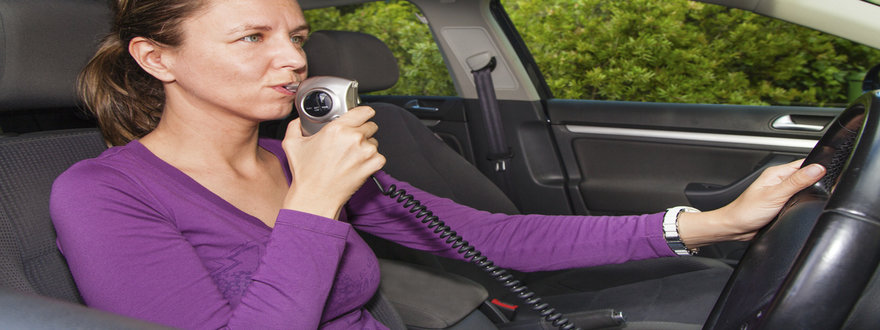If you are caught drink driving, you could face a number of different penalties including fines, disqualification and even a possible jail sentence. From February next year onwards, if you have been convicted of a serious or repeat drink driving offence, you may also be required to participate in an alcohol interlock program under new laws which have just been introduced.
For full details of the potential penalties and what might apply in your individual circumstances, it’s best to speak with a specialist drink driving lawyer.
What is an alcohol interlock device?
An interlock device is attached to a breathalyser and prevents your car from starting unless you first pass a breath test. You will also have to continue providing breath samples at random intervals during your journey.
What is the alcohol interlock program?
The alcohol interlock program is a court-approved program where you are required to fit an alcohol interlock device to your car.
The alcohol interlock program is currently intended to replace part of your mandatory disqualification period, and eligibility for participation is decided by the court.
An alcohol interlock device can only be fitted or removed by an approved installer, and you will be required to pay all costs associated with its installation or removal. Currently, participants are required to obtain a doctor’s certificate before RMS can issue them with an interlock licence.
Under current legislation, participation in the alcohol interlock program is voluntary, but this is going to change next year as mandatory participation is brought in for more serious alcohol-related driving offences.
How will the changes work?
When a person is convicted of a serious driving offence or if they have committed repeat offences, they will be given a mandatory period of disqualification followed by a mandatory period of participation in the alcohol interlock program.
Throughout the interlock period, data from each interlock device will be monitored by RMS and at the end of the period, the person using the device will either get their licence back with no restrictions, or if data shows that they have not been able to separate drinking and driving, they may be required to undergo a further interlock period or a medical assessment.
Who will be affected?
It is anticipated that these changes will affect around 6,000 drivers in NSW each year.
The program will be aimed at drivers who have been found guilty of a high range drink driving offence, or those who have committed two or more drink driving offences within a five-year period.
If you are from NSW and have been charged with a drink driving offence, or any other criminal offence, make sure you seek experienced legal advice from a criminal defence lawyer in Sydney or your local area.




